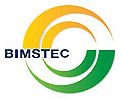
Bay of Bengal Initiative for Multi-Sectoral Technical and Economic Cooperation (BIMSTEC)
Search Open Yearbook
This information is part of the Open Yearbook, a free service of UIA's subscription-based Yearbook of International Organizations (YBIO). It includes profiles of non-profit organizations working worldwide in all fields of activity. The information contained in the profiles and search functionality of this free service are limited.
The full-featured Yearbook of International Organizations (YBIO) includes over 77,500 organization profiles, additional information in the profiles, sophisticated search functionality and data export. For more information about YBIO, please click here or contact us.
The UIA is a leading provider of information about international non-profit organizations. The aim of the Open Yearbook is to promote the activities of international non-governmental organizations (INGOs) and intergovernmental organizations (IGOs).
Contact Details
More detailed data available with paid subscription.
Founded
1997-06-06 Bangkok Thailand
History
Available with paid subscription only.Aims
Create an enabling environment for rapid economic development; accelerate social progress in the sub-region; promote active collaboration and mutual assistance on matters of common interest; provide assistance to each other in the form of training and research facilities; cooperate more effectively in joint efforts that are supportive of, and complementary to, national development plans of member states; promote socio-economic development; create an enabling environment for cooperation in various fields between member countries in order to enhance the livelihoods of the peoples of the region.
Events
21 past events available with paid subscription only.Activities
Available with paid subscription only.Structure
Available with paid subscription only.Finance
Available with paid subscription only.Relations with Inter-Governmental Organizations
Cooperates with: F-XF0077 - Asian Development Bank (ADB); G-XF1953 - Research and Information System for Developing Countries, India (RIS, India).
Publications
Available with paid subscription only.Members
Available with paid subscription only.Type I Classification
Available with paid subscription only.Type II Classification
Available with paid subscription only.Subjects *
- Geology → Land and Coastal Forms
- Economics → Economic
- Technology → Technical
- Development → Development
- Solidarity → Cooperation
UN Sustainable Development Goals **
UIA Org ID
XM0273
** UN SDGs are linked to the subject classification.
← return to your search page to find additional profiles.
UIA allows users to access and make use of the information contained in its Databases for the user’s internal use and evaluation purposes only. A user may not re-package, compile, re-distribute or re-use any or all of the UIA Databases or the data* contained therein without prior permission from the UIA.
Data from database resources may not be extracted or downloaded in bulk using automated scripts or other external software tools not provided within the database resources themselves. If your research project or use of a database resource will involve the extraction of large amounts of text or data from a database resource, please contact us for a customized solution.
UIA reserves the right to block access for abusive use of the Database.
* Data shall mean any data and information available in the Database including but not limited to: raw data, numbers, images, names and contact information, logos, text, keywords, and links.